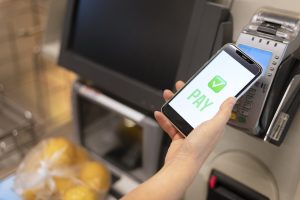 Back
Back
Trust pays: New index links digital confidence to nation’s GDP growth
By Gloria Methri
 Economic growth isn’t just about exports and infrastructure anymore—it’s also about how confidently your citizens click “Buy Now.” A groundbreaking new study by Checkout.com reveals a direct link between consumer trust in the digital economy and national GDP growth, proving that in today’s world, trust is more than just a virtue; it’s economic fuel.
Economic growth isn’t just about exports and infrastructure anymore—it’s also about how confidently your citizens click “Buy Now.” A groundbreaking new study by Checkout.com reveals a direct link between consumer trust in the digital economy and national GDP growth, proving that in today’s world, trust is more than just a virtue; it’s economic fuel.
The inaugural Digital Economy Trust Index, released by Checkout.com, ranks 16 countries based on consumer confidence in digital platforms. The findings? Nations with higher digital trust are outpacing others in economic growth — a compelling case for why secure, transparent, and seamless online experiences are no longer optional but essential.
At the top of the trust ladder sits China, boasting a near-perfect trust score of 8.6 out of 10. The country leads in confidence in emerging payment technologies, biometric security, and AI, signalling a society that is not only digitally enabled but also digitally optimistic. Following closely are the UAE, Saudi Arabia, and Egypt, all part of a Middle Eastern bloc that appears to be thriving on a potent mix of government-led innovation and public enthusiasm for new tech.
Surprisingly, Japan, often hailed as a tech-forward nation, lands at the bottom of the Index with a modest trust score of 2.6. Despite its technological prowess, the Japanese public appears wary of the very digital tools transforming commerce worldwide.
Trust in Tech: A Global Mismatch
The Digital Economy Trust Index doesn’t just rank countries — it unpacks what makes users tick (or hesitate) online. Across 18 distinct dimensions, the strongest indicators of overall trust were belief in safer payments via new technologies and confidence in AI tools. This suggests that consumers globally are measuring their faith not just in platforms, but in the tech beneath them.
China’s top-ranking status reflects a perfect storm: cutting-edge infrastructure, cultural openness, and a regulatory framework that supports innovation. Similarly, the Middle East’s strong showing points to strategic investment in biometrics, blockchain, and AI technologies, viewed with far more scepticism in the West.
East Rises, West Hesitates
European and North American consumers, by contrast, are cautious, especially when it comes to blockchain and AI. Brits, in particular, are anxious about being duped by deepfakes, especially during online shopping, and wary of how their images might be misused.
While Spain leads in Continental Europe, and the Netherlands shows strong participation in the circular economy, trust in digital wallets and emerging tech remains low across the continent. Germany continues to rely on traditional notions of consumer protection, while France only escapes the bottom spot, ahead of Japan.
In North America, the U.S. has complete faith in online checkout processes but lags in trust in blockchain and user data protections. Canada scores slightly better in storing payment details online, but shares America’s hesitance around fraud protections.
The Digital Underdogs and Overachievers
One of the most telling narratives in the Index is that of emerging markets leapfrogging traditional systems. Countries like Brazil, with its rapid adoption of Pix and growing gig economy, and Egypt, where trust in AI and digital ID is disproportionately high compared to payment volumes, are seizing opportunities the traditional financial world once dominated.
New Zealand, sitting in the middle of the pack, punches above its weight in trust around digital identity and AI, showing that leadership doesn’t always come from size but from mindset.
Jenny Hadlow, COO at Checkout.com, frames it succinctly: “In the digital economy, trust is earned. Clicking ‘buy’ is part of a journey — consumers hand over sensitive data and make leaps of faith in technology. This Index measures that trust and reveals the barriers holding it back.”
And the stakes are high. As the report shows, nations that earn digital trust enjoy faster economic growth. In other words, the more consumers trust the digital ecosystem, the more they spend, invest, and participate, fueling GDP in the process.
IBSi FinTech Journal

- Most trusted FinTech journal since 1991
- Digital monthly issue
- 60+ pages of research, analysis, interviews, opinions, and rankings
- Global coverage






